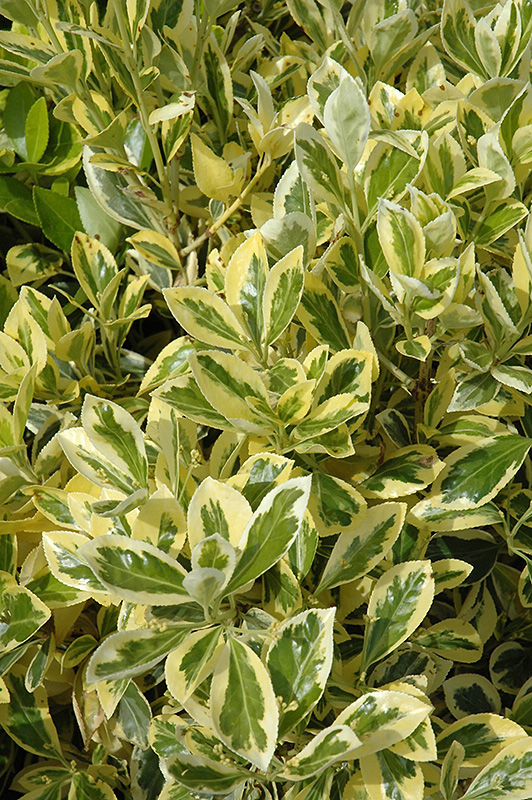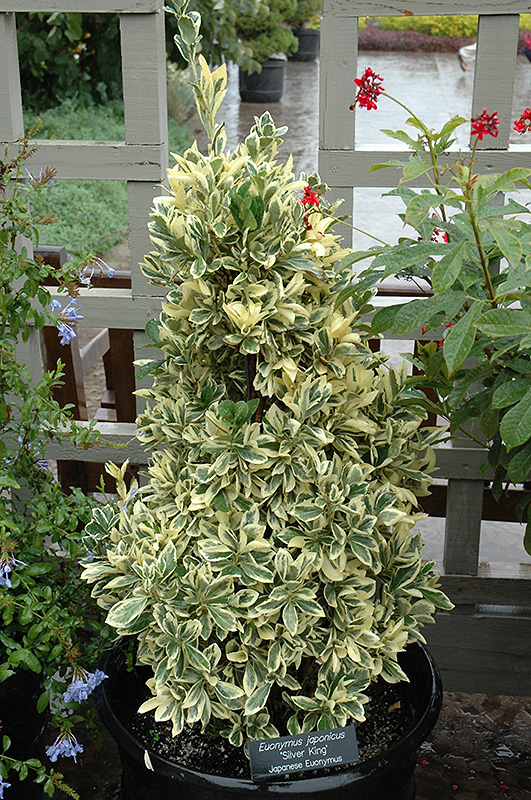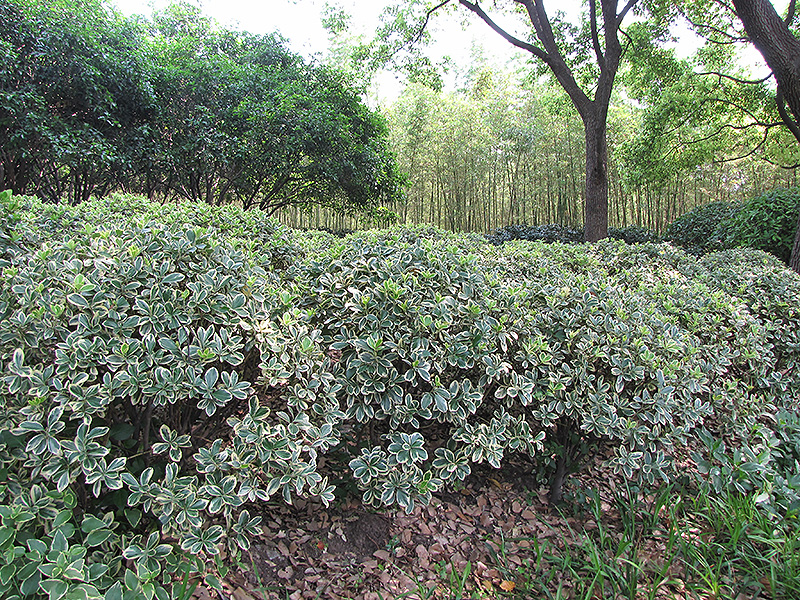Silver King Euonymus
Euonymus japonicus 'Silver King'
Height: 6 feet
Spread: 6 feet
Sunlight:
![]()
![]()
![]()
Hardiness Zone: 6
Other Names: Japanes Spindle Tree
Description:
Rich glossy dark-green foliage features bright silver-white variegation; seaside salt tolerance; a great hedge plant with light dense branches that tolerate shearing for a formal appearance, or leave to its natural shape
Ornamental Features
Silver King Euonymus has attractive silver-variegated dark green foliage on a plant with an upright spreading habit of growth. The glossy oval leaves are highly ornamental and remain dark green throughout the winter.
Landscape Attributes
Silver King Euonymus is a dense multi-stemmed evergreen shrub with an upright spreading habit of growth. Its relatively fine texture sets it apart from other landscape plants with less refined foliage.
This shrub will require occasional maintenance and upkeep, and can be pruned at anytime. Gardeners should be aware of the following characteristic(s) that may warrant special consideration;
- Insects
Silver King Euonymus is recommended for the following landscape applications;
- Mass Planting
- Hedges/Screening
- General Garden Use
- Topiary
Planting & Growing
Silver King Euonymus will grow to be about 6 feet tall at maturity, with a spread of 6 feet. It tends to fill out right to the ground and therefore doesn't necessarily require facer plants in front, and is suitable for planting under power lines. It grows at a fast rate, and under ideal conditions can be expected to live for 40 years or more.
This shrub performs well in both full sun and full shade. It is very adaptable to both dry and moist locations, and should do just fine under average home landscape conditions. It may require supplemental watering during periods of drought or extended heat. It is not particular as to soil type or pH, and is able to handle environmental salt. It is highly tolerant of urban pollution and will even thrive in inner city environments, and will benefit from being planted in a relatively sheltered location. Consider applying a thick mulch around the root zone in both summer and winter to conserve soil moisture and protect it in exposed locations or colder microclimates. This is a selected variety of a species not originally from North America.



